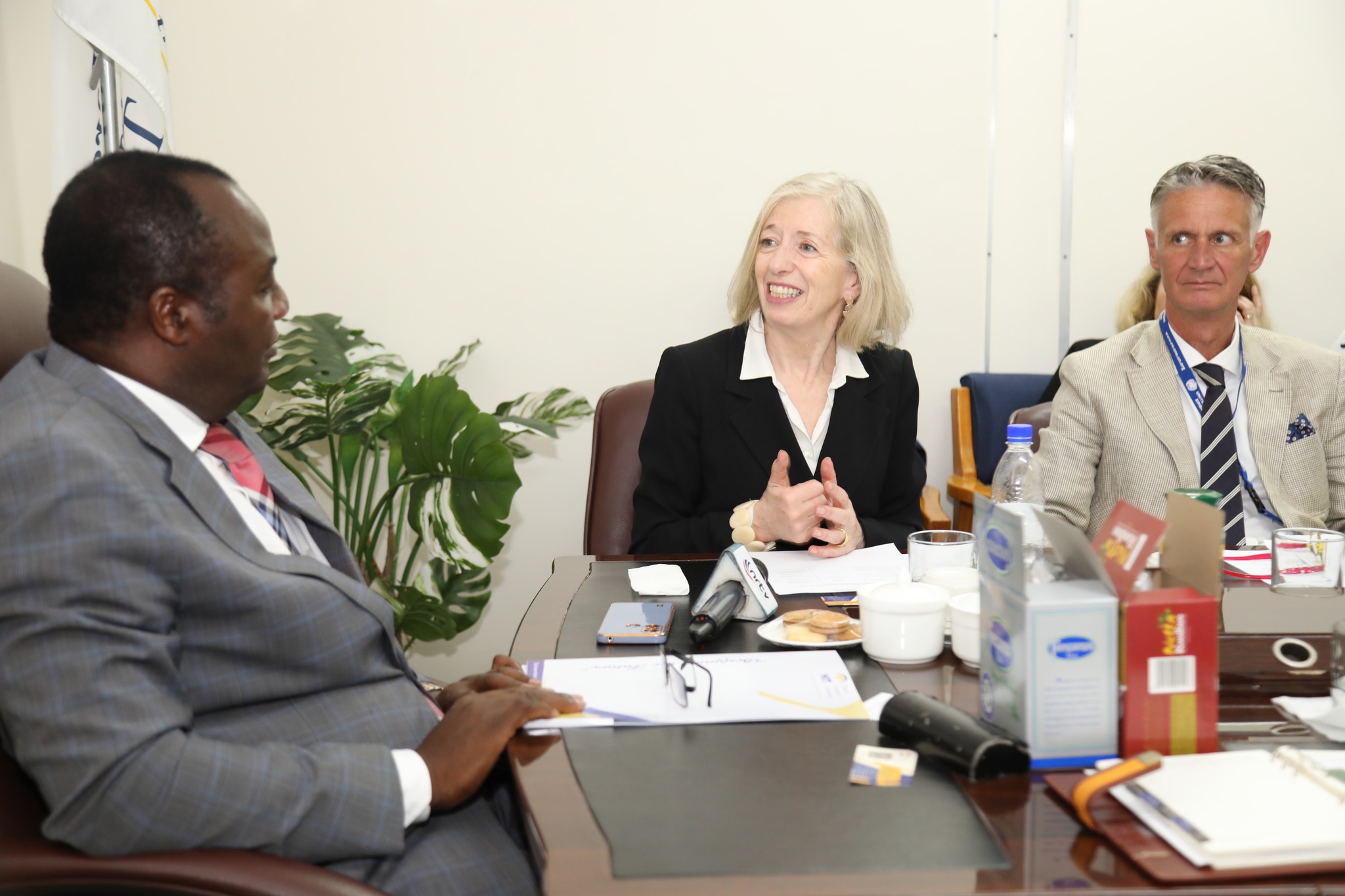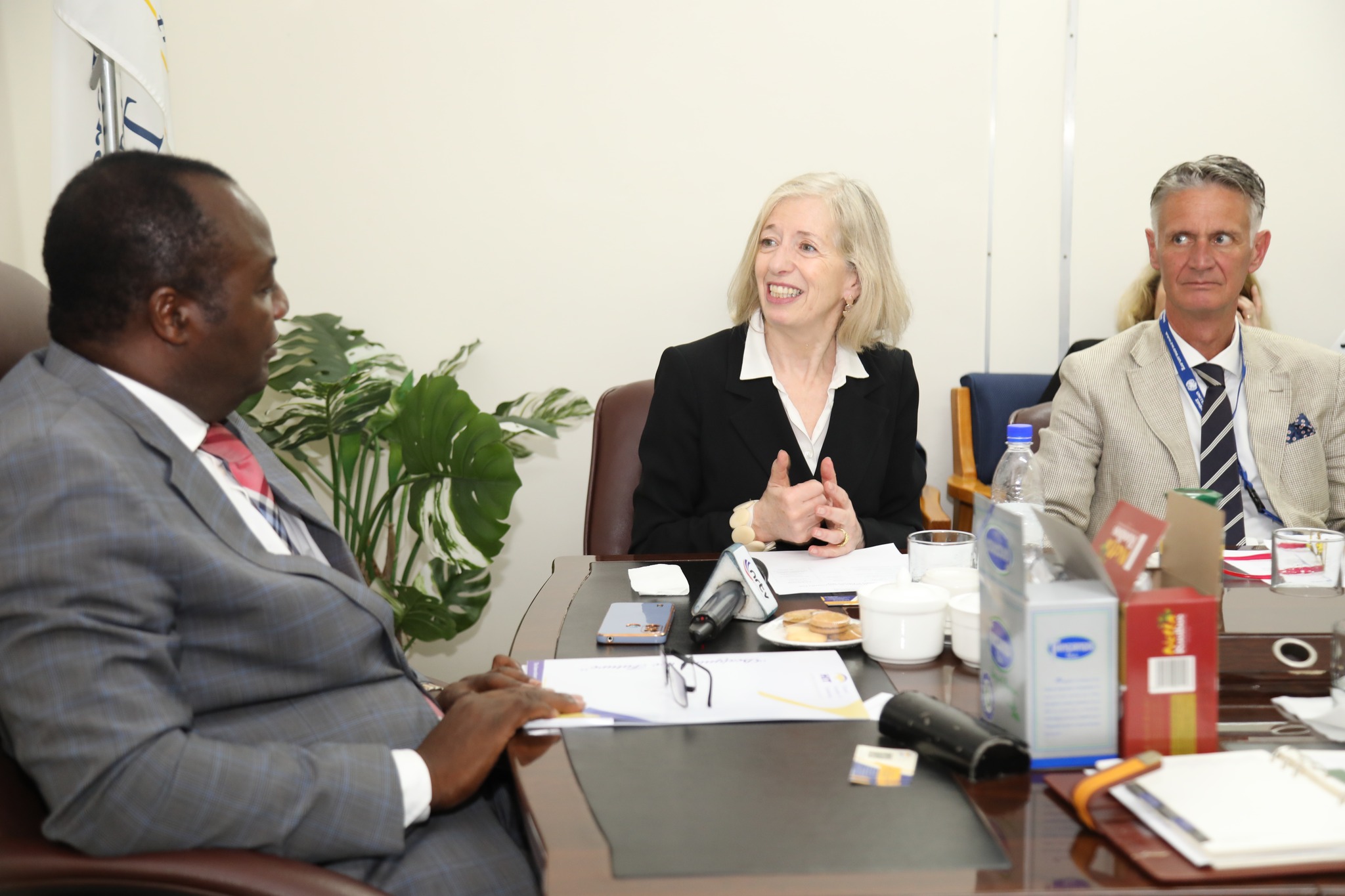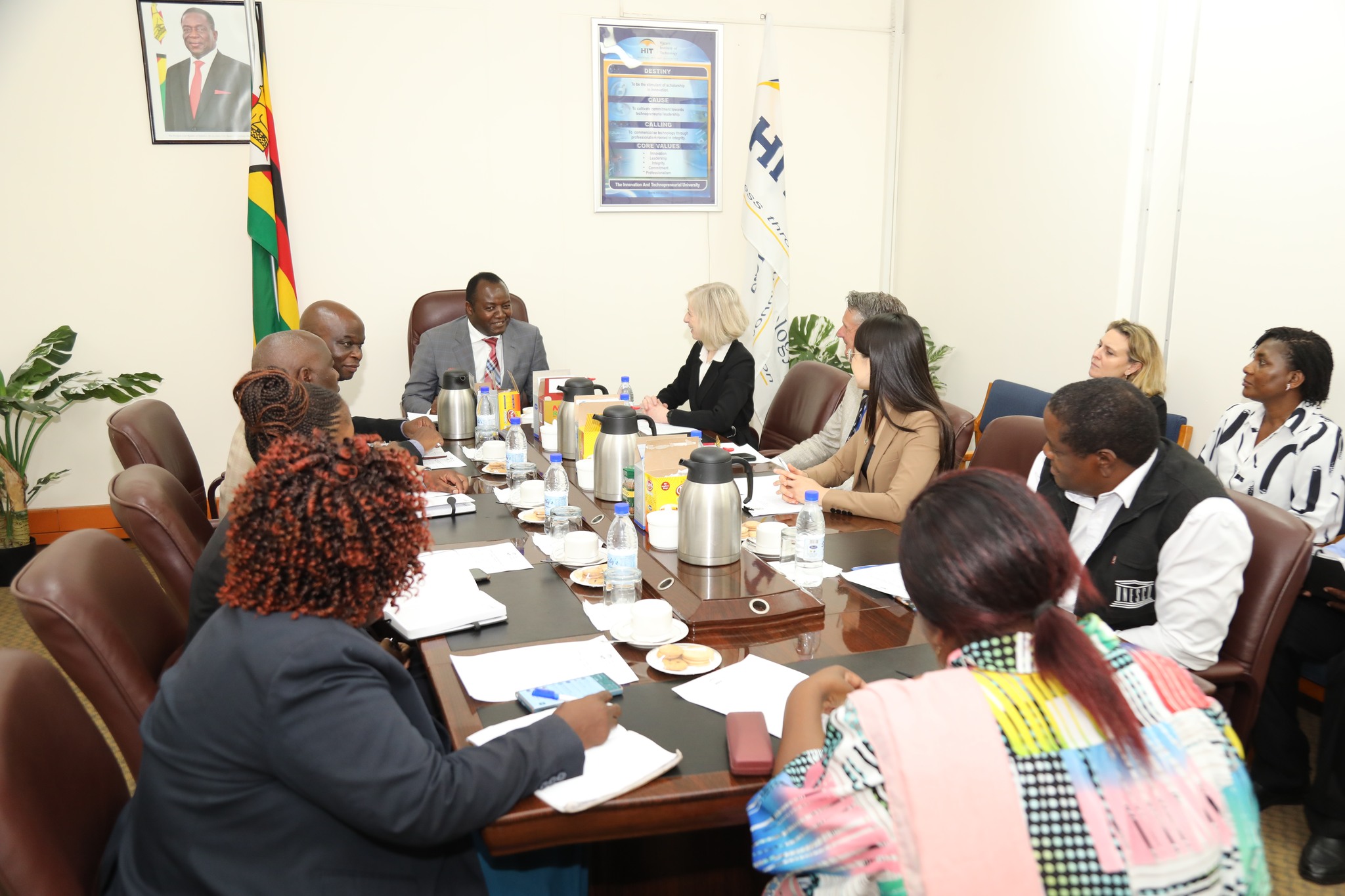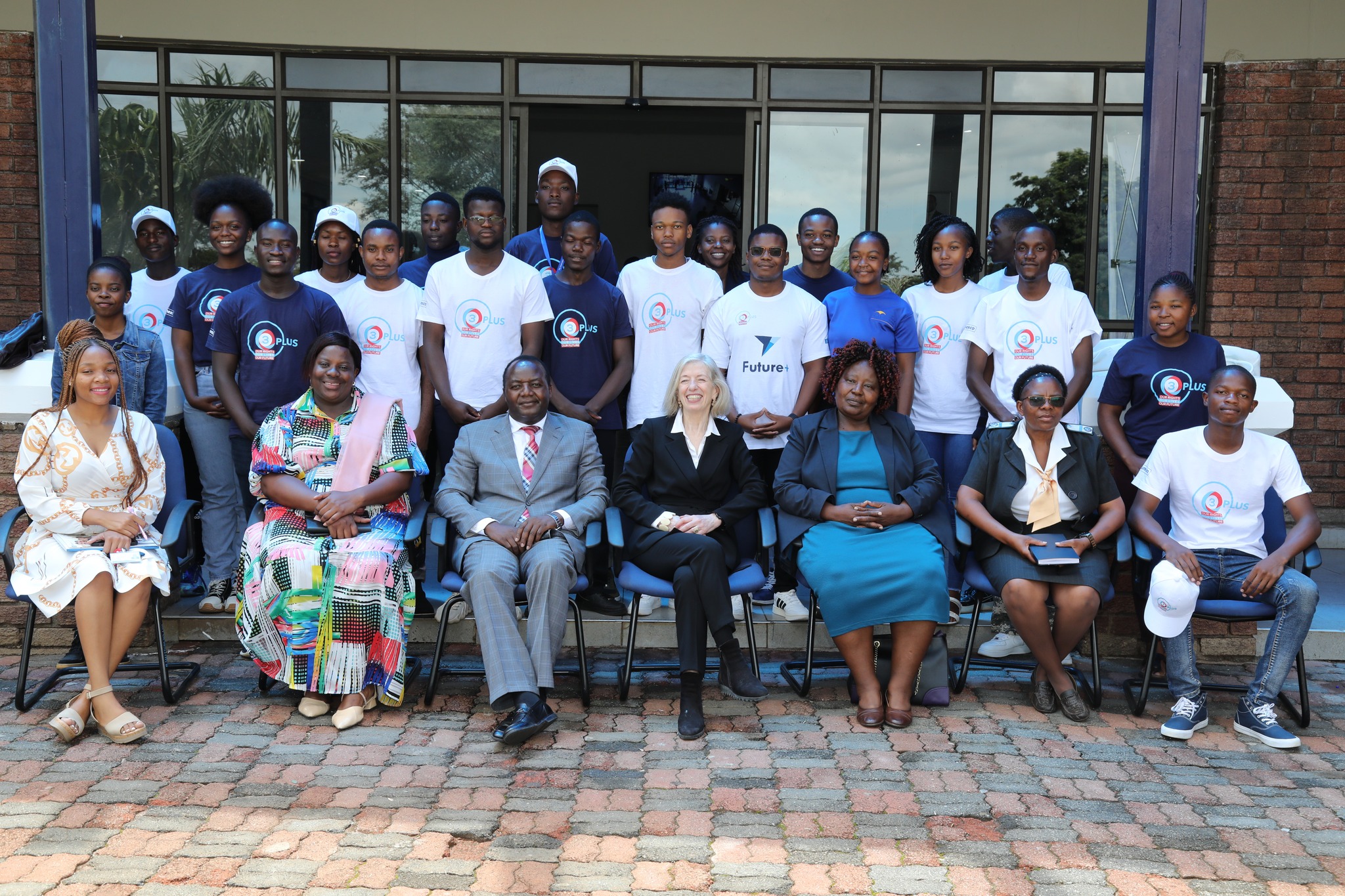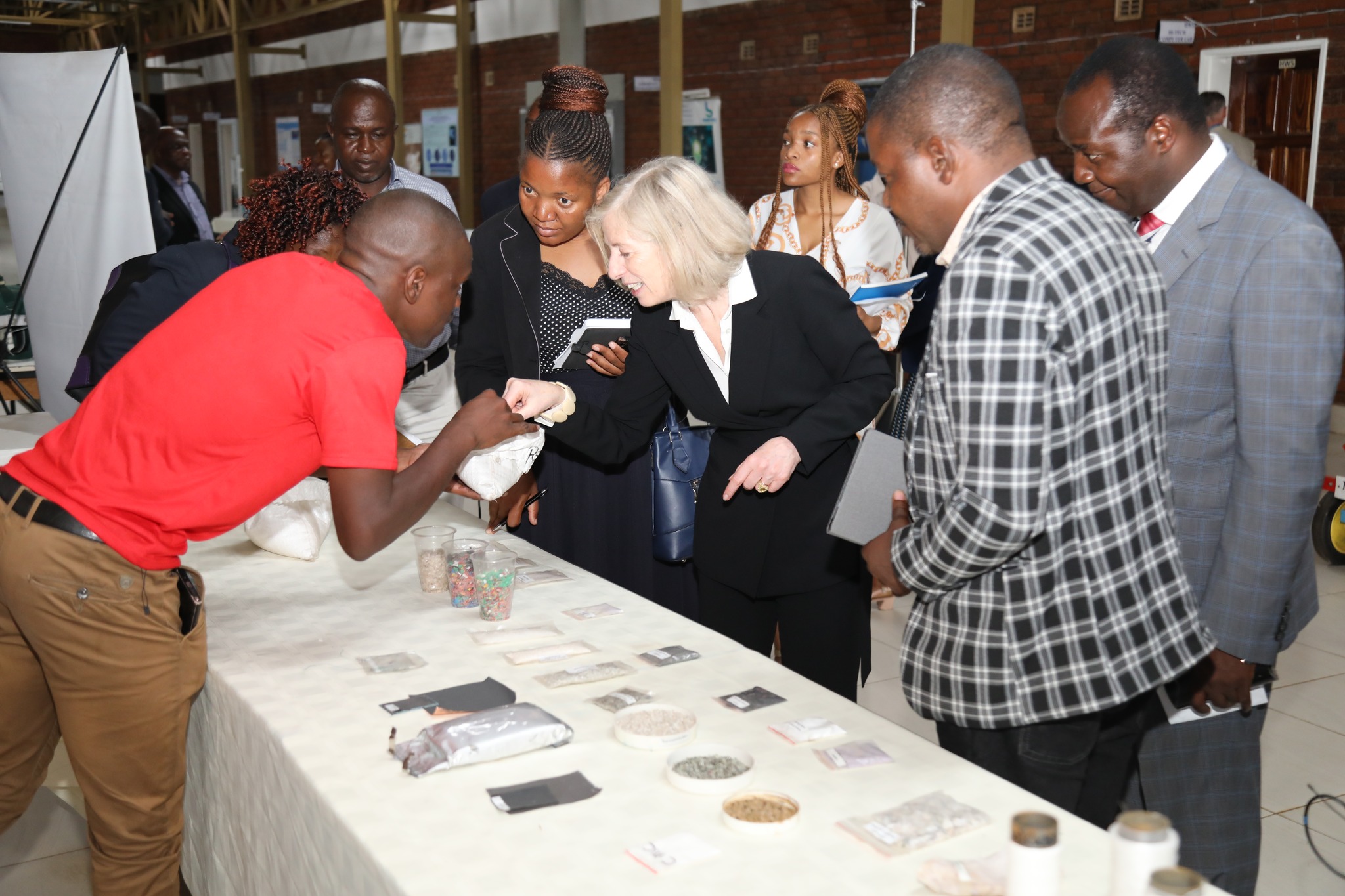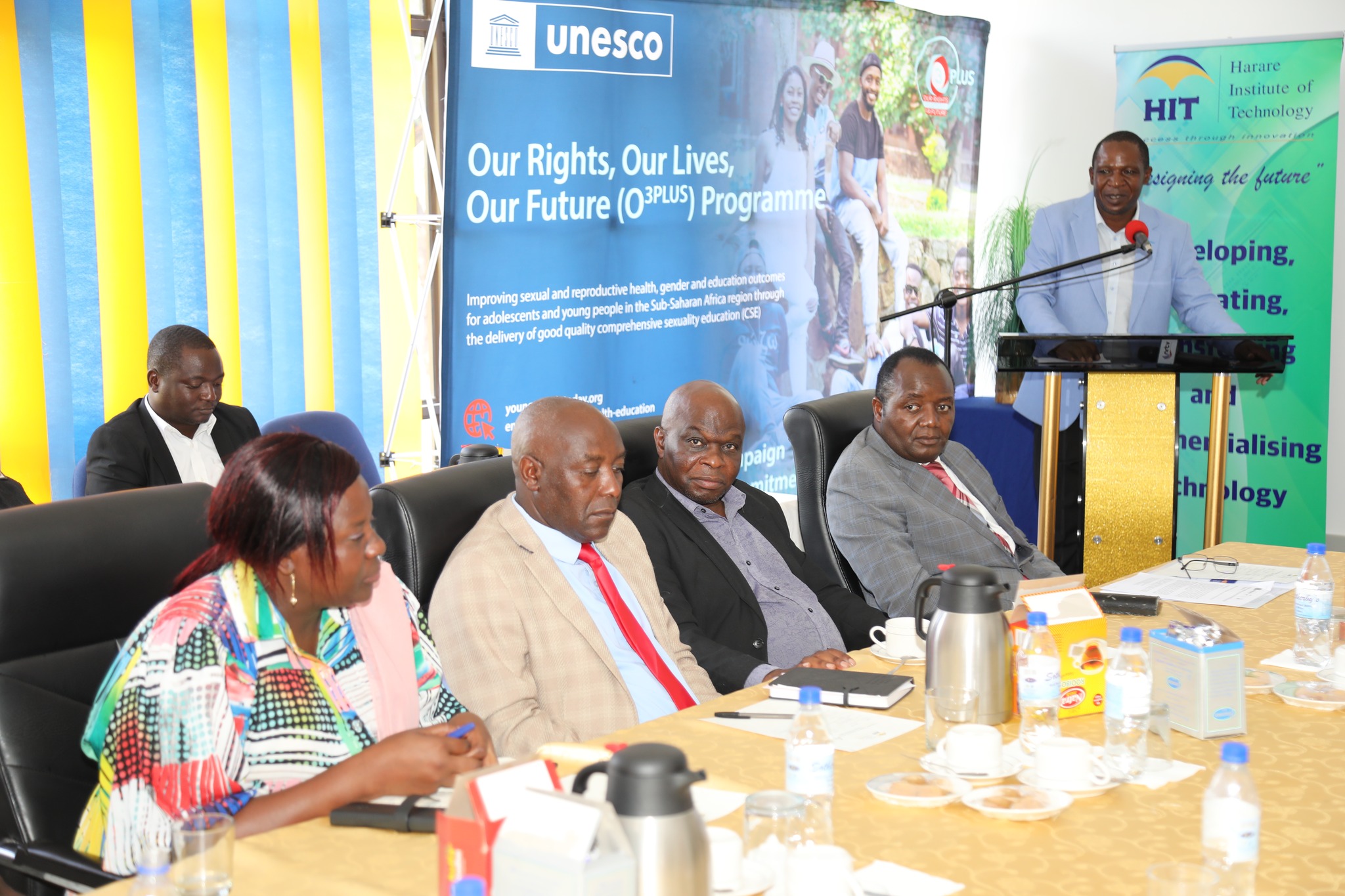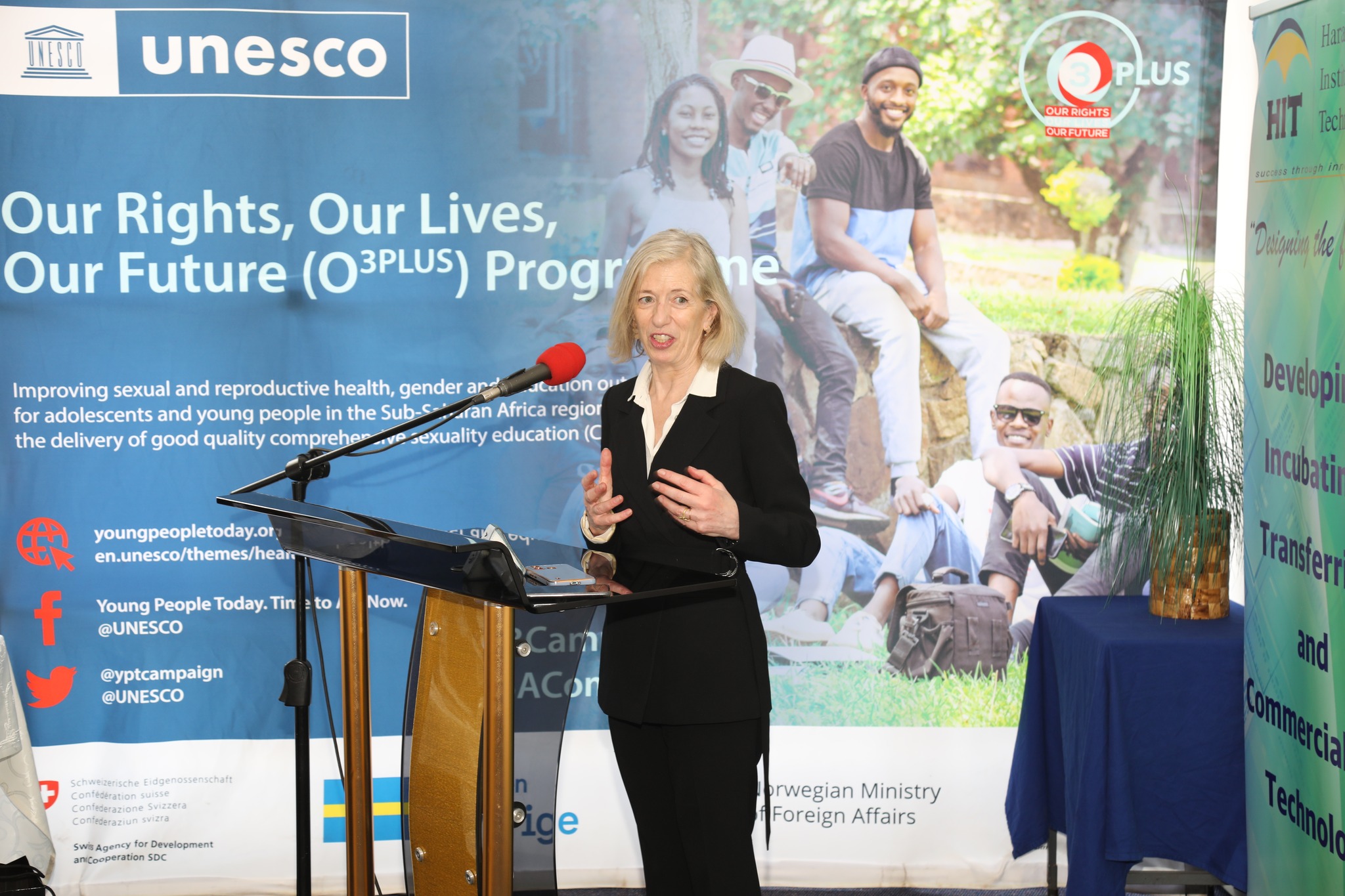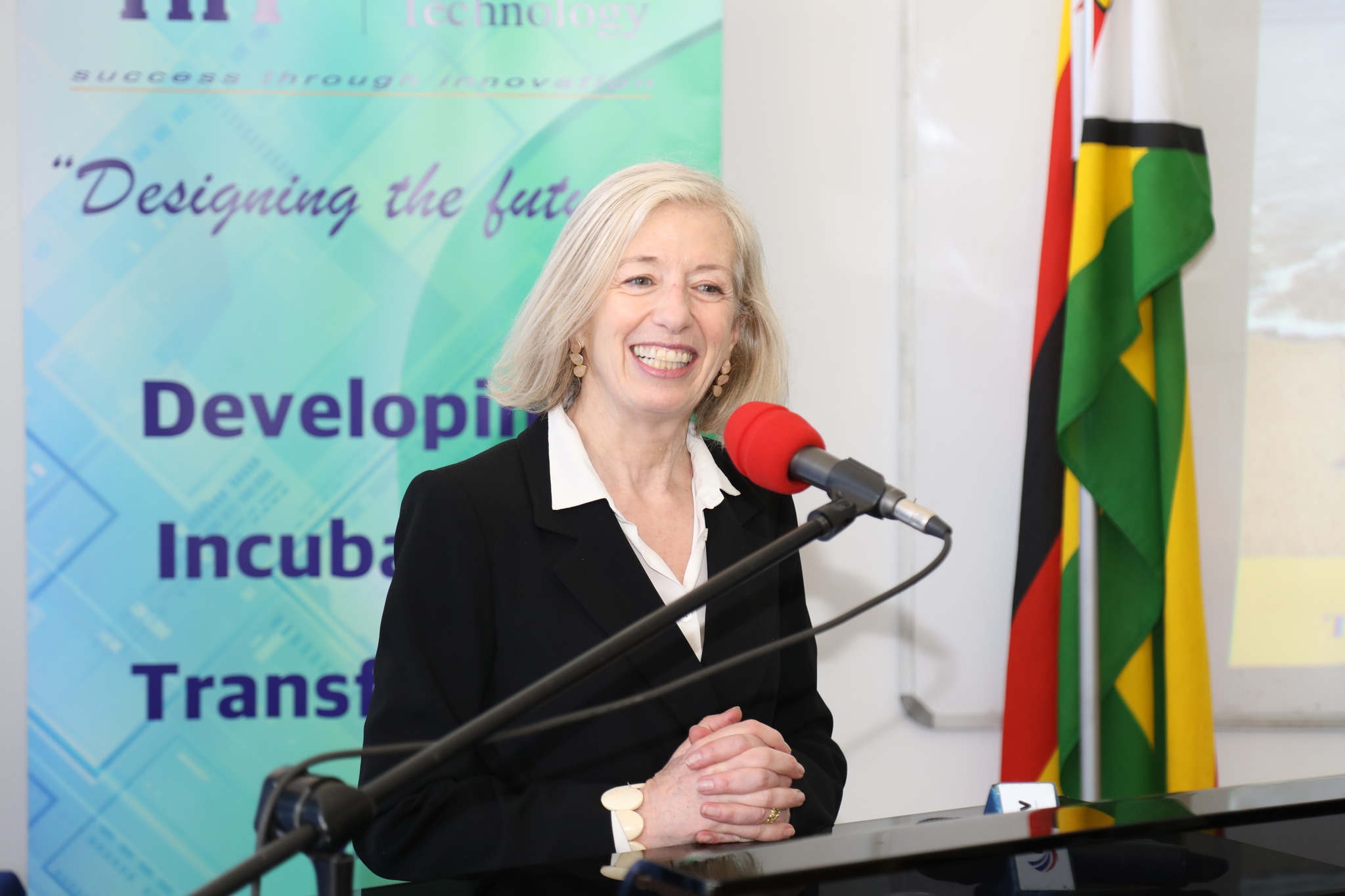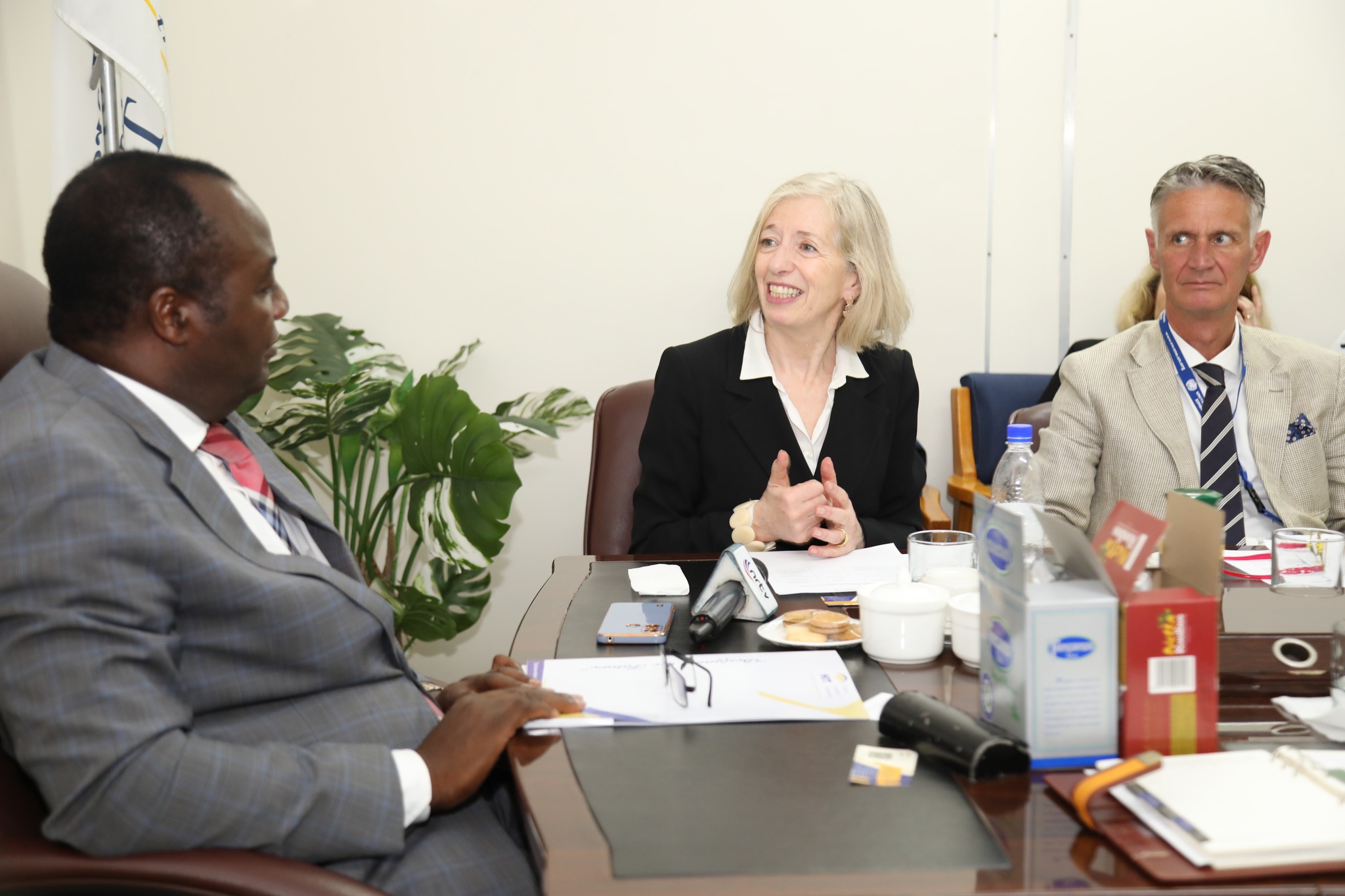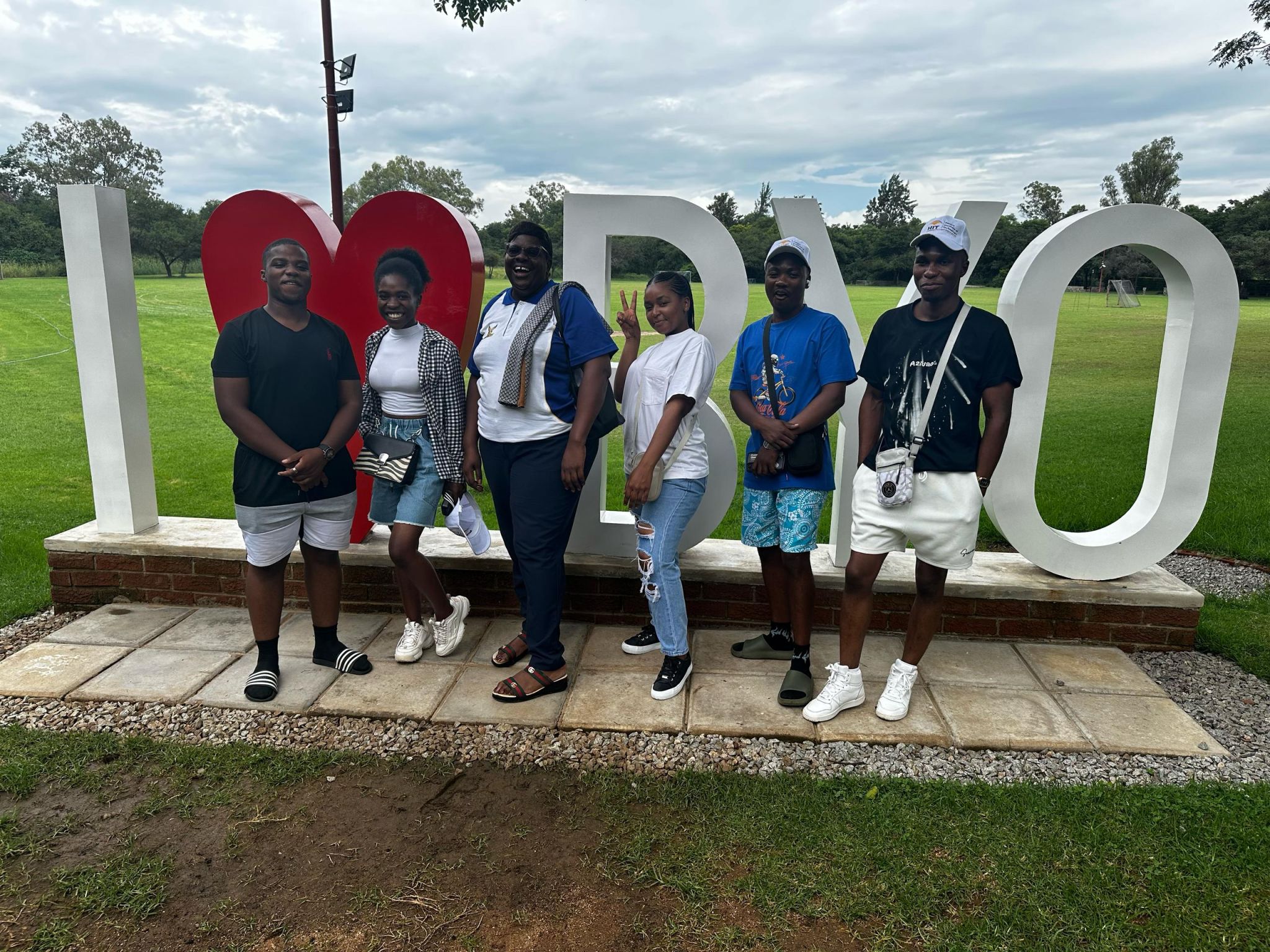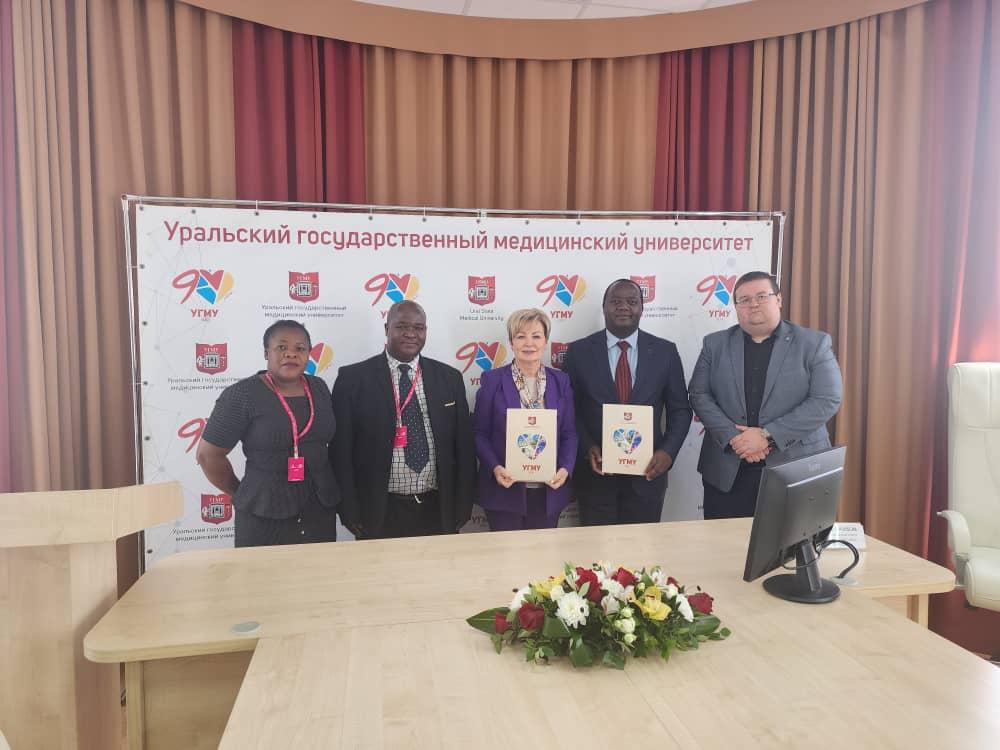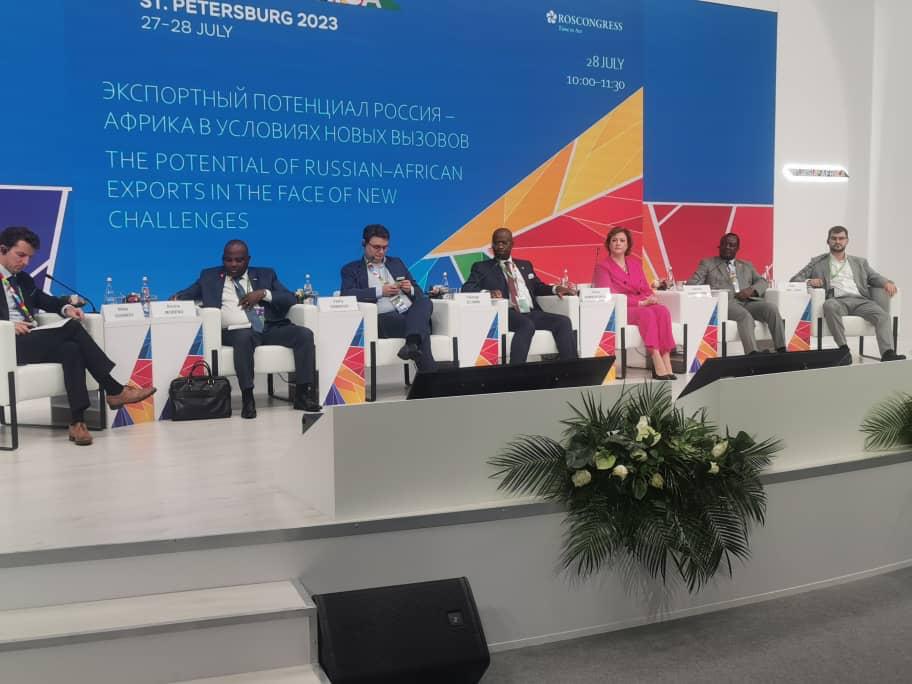The United Nations Educational, Scientific and Cultural Organisation (UNESCO) Assistant Director General in charge of Education, Ms Stefania Giannini, visited the Harare Institute of Technology (HIT) on Tuesday, 27 February 2024, to assess the impact of the organization’s support of the University’s projects.
The HIT Vice Chancellor, Professor Quinton Chamunorwa Kanhukamwe, gave a detailed report on UNESCO’s projects, which include the 03 Plus and the Engineering for Sustainability programs.
The 03 Plus project at HIT aims to support innovation in access to life skills-based sexual education and reproductive health services for students while advocating for policy and practice changes on campus to create a safe and inclusive learning environment. The project has institutionalized student health and well-being programmes and engaged University leadership for long-term commitment and sustainability.
“Under the 03 Plus project, various initiatives have been implemented, including training mentors on life skills and student health, reviewing sexual harassment policies, training peer educators on reproductive health, and conducting gender-based violence awareness on campus. The project has also renovated the HIT Campus Health Center and established a mobile application called Future Plus for online counselling and resources on relevant adolescent issues,” said the Vice-Chancellor.
In addition to the 03 Plus project, HIT is also running the Engineering for Sustainability programme in collaboration with UNESCO. This program encourages staff members to embrace and integrate sustainable development into their curriculum. The project aims to create synergies between institutions of higher education, industry, and the community to address sustainability issues through engineering projects.
Ms Giannini expressed her satisfaction with the presentations and outputs of HIT’s interdisciplinary research. She emphasized the importance of collaboration and innovation in supporting the Sustainable Development Goals (SDGs) and encouraged the University to continue seeking new ideas and developing innovative research outputs.
Overall, the visit by Ms Stefania Giannini to the Harare Institute of Technology highlighted the significant impact of UNESCO’s support on various projects at the University, promoting a safe and inclusive learning environment and fostering sustainability through engineering initiatives.


